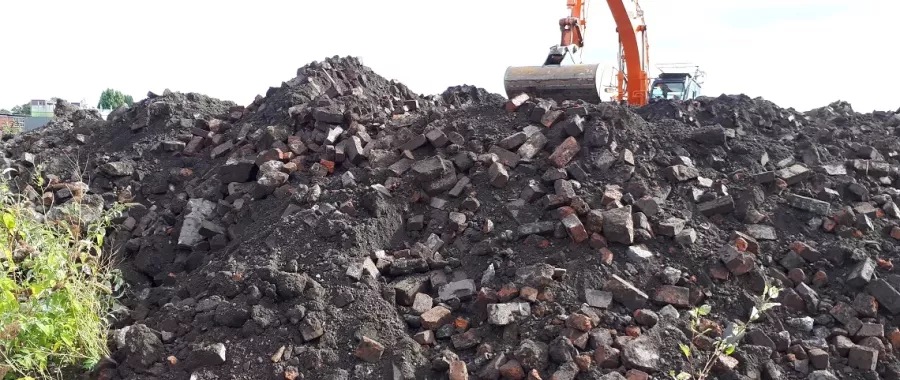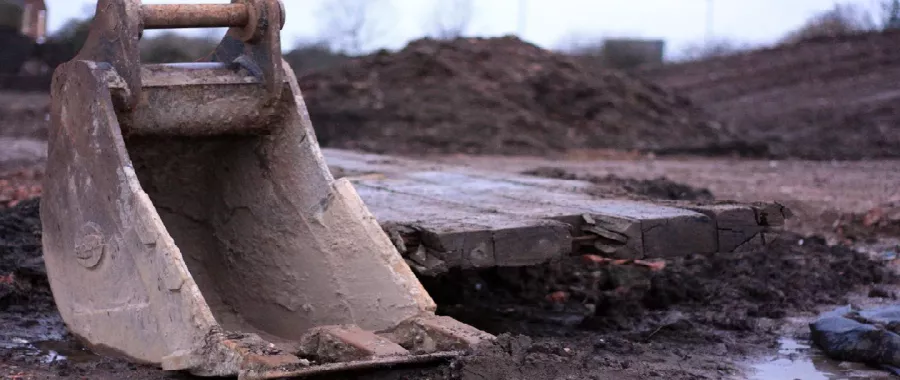Denis Morgan, divisional technical manager – asbestos, Built Environment Services, gives an overview of recently released asbestos guidance and its implications for the housing sector.

Denis Morgan, divisional technical manager – asbestos, Built Environment Services, gives an overview of recently released asbestos guidance and its implications for the housing sector.
Over the next ten years, there are plans to create millions of new homes across the UK in an effort to help relieve Britain’s current housing crisis. Many of these will be built on disused but previously industrialised areas, commonly known as ‘brownfield’ sites.
Reclaiming this land for much-needed housing is a matter of national importance which is reflected in government policy. Currently, more than 60 per cent of all new homes in England are being built on brownfield land. This figure is expected to rise over the coming years as the UK’s population and the resulting demand for development plots grow.
Hidden threats
Before it was banned in 1999, asbestos was a very common building material in Britain, used for insulation purposes due to its thermal resistant properties. Many brownfield sites will have been previously home to structures that contained contaminated materials. Having been demolished, the dangerous asbestos fibres may still be found within the soil. This means there is an added pressure on those charged with the assessment and remediation of these important sites to ensure adequate levels of health and safety.
When the asbestos regulations (CAWR 2002) came into force, all accompanying guidance was aimed at working with asbestos in buildings and not in ground materials. As more and more activity occurs on brownfield sites, there has been a greater focus within the industry regarding best practice when working with asbestos in soils. This has resulted in calls for clarification on how the CAR 2012 regulations can be applied in this area.
Much needed guidance
In July 2016, industry body, CL:AIRE, (Contaminated Land: Applications in Real Environments) responded with the publishing of much-needed guidance. This is known as the Control of Asbestos Regulations 2012: Interpretation for Managing and Working with Asbestos in Soil and Construction & Demolition materials: Industry Guidance, or CAR-SOILTM for short.
Supported by the Health and Safety Executive, CAR-SOILTM interprets CAR 2012 and translates it to working with asbestos contaminated soils and materials. The authoritative guide is well-illustrated, providing instructions, observations and advice for ground workers with the responsibility of assessing or remediating at-risk brownfield sites.
A particular source of confusion in CAR 2012 is around the types of asbestos remediation work that can only be carried out by contractors licensed by the Health and Safety Executive (HSE). To clarify this, CAR-SOILTM presents several ‘grey area’ scenarios which explain in detail what can be worked on by notifiable non-licensed operatives and what must be handled by licensed contractors. The guidance also contains photos of different asbestos types commonly found in the field as well as instruction on how to identify and assess the risk of fibres in varying soils.
In addition to the guidance, CL:AIRE has also released a ‘decision support tool’ which can be used by practitioners onsite. This simple method allows for the input of site data and assists in the categorisation of work with asbestos under CAR2012. Although the tool is rather basic in its current form, it can be a useful indicator of potential hazards during initial risk assessments.
A safer working environment
As more brownfield development projects are given the green light, we are seeing a growing demand for asbestos related services, especially in regards to soils. At SOCOTEC, we welcome the new CL:AIRE guidance, which will give workers dealing with asbestos in soils the confidence and reassurance they need do their jobs safely.
The new document is an invaluable resource for the industry and should lead to an improvement in standards across the board as well as increased levels of worker health and safety.
Want more information and advice on asbestos in soils? Call us on 0845 603 2112 or click here

You might also like







Add new comment